Elin wicks - Study guides, Class notes & Summaries
Looking for the best study guides, study notes and summaries about Elin wicks? On this page you'll find 19 study documents about Elin wicks.
Page 2 out of 19 results
Sort by
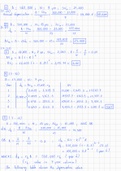
-
HW12 - Chapter 7: Depreciation and Income Taxes
- Other • 3 pages • 2023
-
- $2.99
- + learn more
It discusses the different methods of depreciation (such as straight-line, declining balance, and sum-of-the-years' digits), how to calculate depreciation expenses, and the impact of different depreciation methods on income taxes. The chapter also covers the basics of income taxes, including the different types of taxes and tax rates, tax deductions and credits, and how to calculate income tax expenses.
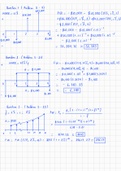
-
HW7_Profitability Measures (PW, FW, AW)_EngEconomics
- Other • 2 pages • 2023
- Available in package deal
-
- $2.99
- + learn more
The three most commonly used profitability measures are present worth (PW), future worth (FW), and annual worth (AW). Each measure provides a different perspective on the profitability of an investment, and engineers can use them in combination to make informed decisions about the use of resources. Present worth (PW) is the value of all future cash flows of an investment at the present time. Engineers use the present worth factor to calculate the present worth of an investment, taking into ac...
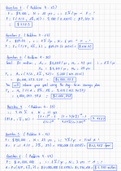
-
HW4_Equivalence Calculations_P,F,A,N_EngEconomics
- Other • 2 pages • 2023
- Available in package deal
-
- $2.99
- + learn more
Equivalence calculations using the four factors - present worth (P), future worth (F), annual worth (A), and nominal rate (N) - are commonly used to compare and evaluate alternative investment options. Present worth (P) is the value today of a series of future cash flows, calculated by discounting them using a given interest rate. Future worth (F) is the value at a future time of a series of present cash flows, calculated by compounding them using a given interest rate. Annual worth (A) is th...
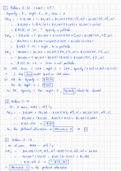
-
HW9_Multiple Alternatives_Engineering Economics
- Other • 2 pages • 2023
-
- $2.99
- + learn more
Multiple alternatives analysis is a decision-making tool used to compare and select the best alternative among several options. Multiple alternatives analysis involves evaluating different alternatives based on their costs, benefits, and risks.
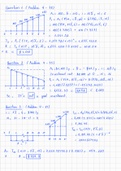
-
HW6_Uniform and Geometric Gradients_EngEconomics
- Other • 2 pages • 2023
- Available in package deal
-
- $2.99
- + learn more
Uniform gradients are cash flows in which the payment or receipt is the same amount for each period. For example, a uniform gradient might be a series of annual payments of $10,000 over the next five years. Engineers use uniform gradient calculations to evaluate investments and financial decisions with constant cash flows. They can use the present worth factor to calculate the value of a uniform gradient, taking into account the time value of money and the interest rate. Geometric gradients, ...
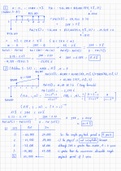
-
HW8_IRR (Internal Rate of Return) and Payback Period_EngEconomics
- Other • 2 pages • 2023
-
- $2.99
- + learn more
IRR (Internal Rate of Return) and Payback Period are two common methods used to evaluate the financial viability of a project. IRR is a financial metric used to determine the rate at which the net present value (NPV) of a project equals zero. It represents the discount rate at which the present value of the expected cash inflows equals the present value of the expected cash outflows. A project is considered financially viable if its IRR is greater than the required rate of return. In other wo...
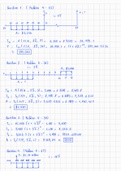
-
HW5_Deferred Annuities and More Complicated Equivalence Calculations_EE
- Other • 2 pages • 2023
- Available in package deal
-
- $2.99
- + learn more
A deferred annuity is an annuity that does not begin making payments until a specified date in the future. In engineering economy, deferred annuities are often used to evaluate investments in which cash inflows or outflows are expected to occur at a future date. Engineers use present worth, future worth, annual worth, and nominal rate factors to calculate the value of deferred annuities and compare them to other investment options. In more complicated equivalence calculations, engineers may u...
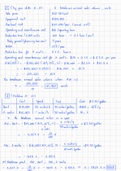
-
HW10_Break-even analysis
- Other • 2 pages • 2023
-
- $2.99
- + learn more
Break-even analysis is a tool used in engineering economy to determine the point at which total revenue equals total costs, resulting in neither a profit nor a loss. The break-even point is the level of production or sales at which the total revenue generated by a product or service equals the total cost of producing it.
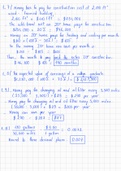
-
HW2_Engineering Economic Analysis_EE
- Other • 1 pages • 2023
- Available in package deal
-
- $2.99
- + learn more
Engineering economic analysis is a branch of engineering that deals with the evaluation of engineering projects and investment options from a financial perspective. It involves the application of mathematical and economic principles to assess the feasibility, profitability, and risk of engineering projects.

How much did you already spend on Stuvia? Imagine there are plenty more of you out there paying for study notes, but this time YOU are the seller. Ka-ching! Discover all about earning on Stuvia


